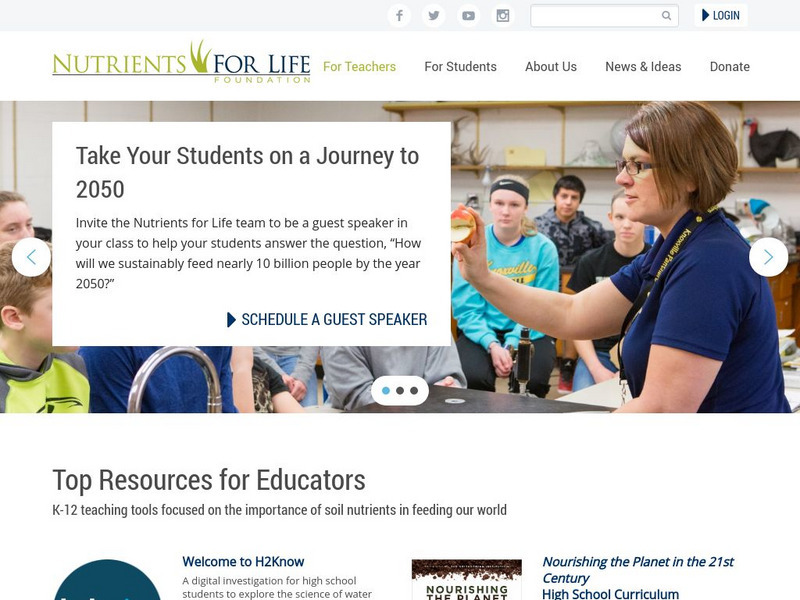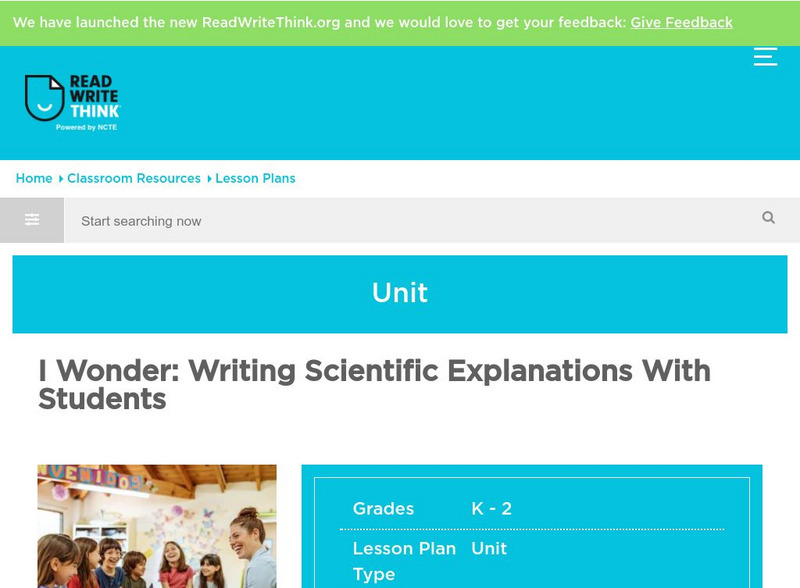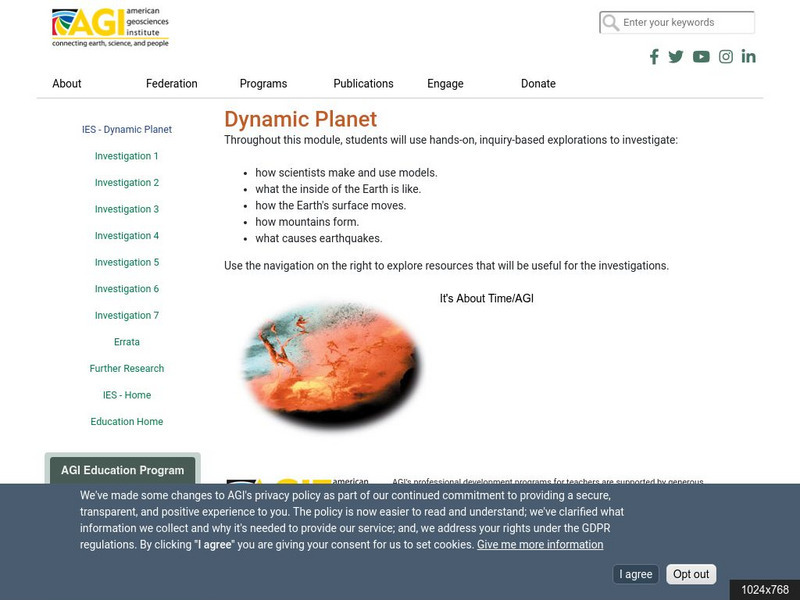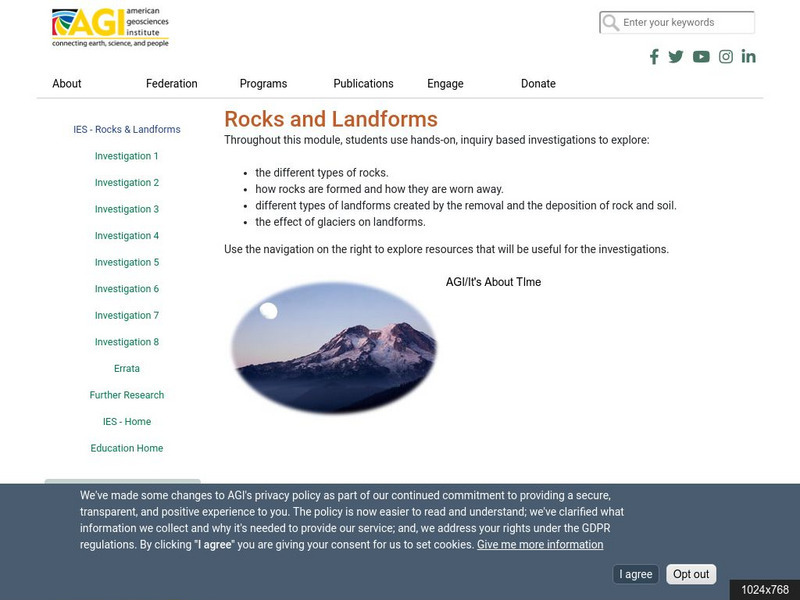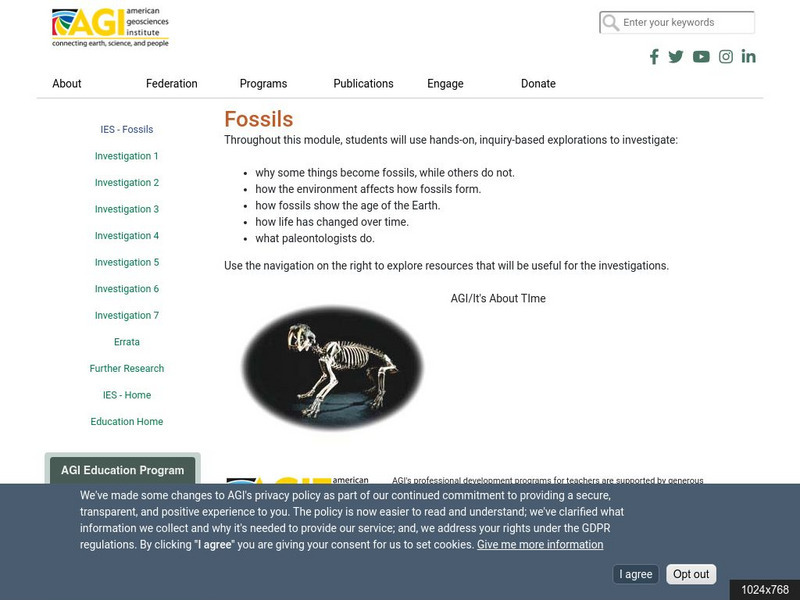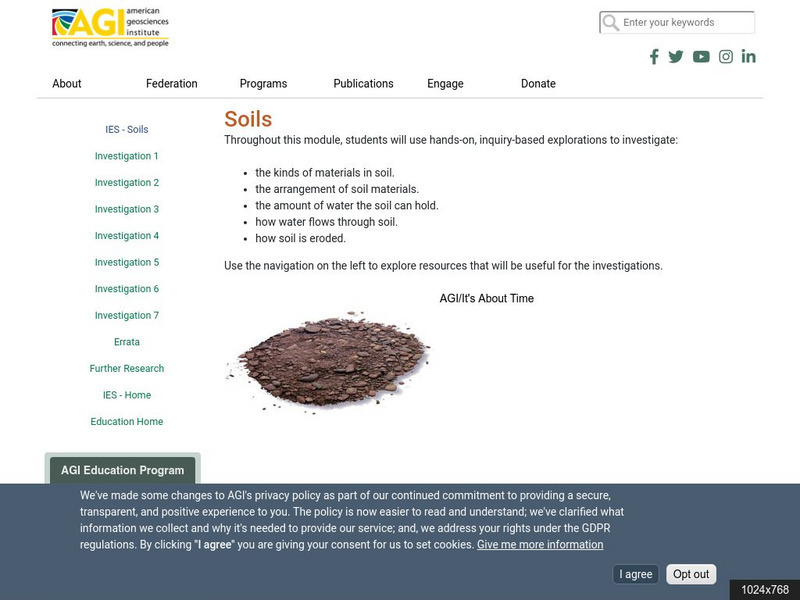Hi, what do you want to do?
College Board
AP® Psychology: Teaching Statistics and Research Methodology
Psychologists use statistics? Scholars investigate the research behind the methodology of statistical analysis. Using hands-on practice, case-studies, and scatterplots, they complete various tasks to understand the very roots of high...
PBS
Pbs Teachers: Scientific American: Life's Big Questions: Hands On, Minds On
Make inferences about the structure and function of human hands. Investigate the relationship between hand actions and recorded points of contact by exploring hand grasps of a pencil and a broom handle.
Science Education Resource Center at Carleton College
Serc: Investigating Se Mn Geology Incl Rock Layers, Fossils, and Karst Geology
Students will work at a variety of hands-on learning stations to increase their knowledge of SE MN geology including rock layers, fossils and sink holes. They will also learn how Karst Geology impacts our water quality. Students will...
Science Education Resource Center at Carleton College
Serc: Investigating White Light: What Colors Make Up White Light?
Two different hands-on activities that explore white light and the colors that make it up. In one activity students will create white light by using a color wheel. In the other activity students discover the colors that make white light...
Science Education Resource Center at Carleton College
Serc: Investigation of Semiconductors
Using a web quest, simulations, and hands on activity, students will gain a basic understanding of semiconductors, diodes, and photovoltaic cells. In these activities students will learn how electrons migrate in semiconductors and...
American Chemical Society
American Chemical Society: Inquiry in Action: Teach Science Well
Online textbook reviews fundamentals of chemistry and physical science via slideshow presentations, notes, and videos. Materials for classroom activities engage students in inquiry-based, hands-on investigations covering molecular...
American Chemical Society
American Chemical Society: Inquiry in Action: Teach Science Well
Online textbook reviews fundamentals of chemistry and physical science via slideshow presentations, notes, and videos. Materials for classroom activities engage students in inquiry-based, hands-on investigations covering molecular...
TED Talks
Ted: Ted Ed: Why Are Some People Left Handed?
Today, about one-tenth of the world's population are southpaws. Why are such a small proportion of people left-handed -- and why does the trait exist in the first place? The following video investigates how the uneven ratio of lefties...
Science Education Resource Center at Carleton College
Serc: Investigating Geologic Features and Processes: A Field Investigation
In this hands-on field investigation, students will investigate geologic features and processes, make and record observations, then use their observations to develop questions to investigate. They will collect and analyze their own data...
Texas Instruments
Texas Instruments: Investigating Acid Strength
This activity allows students a hands-on opportunity to discover why different acids with the same molar concentration have different pH and the opportunity to investigate the effects of acid dilution on pH.
National Association of Geoscience Teachers
Serc: Modeling the Effects of Dam Removal on the Elwha River
Students are introduced to river systems and how they evolve and interact with the Earth's surface over time. They learn about the social and scientific issues surrounding the removal of the Glines Canyon Dam on the Elwha River and...
Science Education Resource Center at Carleton College
Serc: Independent Samples T Test: Chips Ahoy vs. Supermarket Brand
A hands-on investigation where students count the number of chips in cookies in order to carry out an independent samples t-test to see if Chips Ahoy brand cookies have a higher, lower, or different mean number of chips per cookie than a...
PBS
Pbs Mathline Lesson Plan: Sidewalk Capers [Pdf]
The objective of this lesson is for students to, "explore spatial relationships by determining the area of various shapes and creating tessellation patterns." Using a variety of hands-on activities, students apply concepts of geometry,...
Other
Nutrients for Life Foundation: For Teachers: Nourishing the Planet
Download free curriculum with three modules on soil and plant science: elementary, middle, or high school. Each module includes hands-on investigations to help learners understand the importance of healthy soil and thriving plant...
Other
Nutrients for Life Foundation: For Teachers: Nourishing the Planet
Download free curriculum with three modules on soil and plant science: elementary, middle, or high school. Each module includes hands-on investigations to help learners understand the importance of healthy soil and thriving plant...
Better Lesson
Better Lesson: Changing Matter:changing Matter: Is Weight the Same or Different?
Students conduct a hands-on investigation to determine how matter, changing state, effects the property of weight. Students will collect data and graph their results. Resources include step by step instructions, a data worksheet, videos...
ReadWriteThink
Read Write Think: I Wonder: Writing Scientific Explanations With Students
Students choose a question to explore, research it using a variety of resources, organize their information on a TCF chart, and then collaboratively write a class scientific explanation.
American Geosciences Institute
American Geosciences Institute: Dynamic Planet
Seven hands-on lessons module where students learn about our dynamic planet. These inquiry-based explorations investigate scientific models, earthquakes and seismic waves, Earth's interior, Earth movements, the lithosphere, plate...
American Geosciences Institute
American Geosciences Institute: Materials and Minerals
Seven hands-on lessons module that allows students to learn about materials and minerals. These inquiry-based explorations investigate properties of materials, where mineral deposits can be found, how deposits are formed, how minerals...
American Geosciences Institute
American Geosciences Institute: Rocks and Landforms
Eight hands-on lessons module where students learn about rocks and landforms. These inquiry-based investigations explore the different types of rocks, how they are formed, the different types of landforms, and the effects of glaciers on...
American Geosciences Institute
American Geosciences Institute: Fossils
Seven hands-on lessons module where students learn about fossils. These inquiry-based investigations explore how fossils form, properties of fossils, comparing fossils, how they show the age of the Earth, and what paleontologists do.
American Geosciences Institute
American Geosciences Institute: Energy
Seven hands-on lessons module where students learn about energy. These inquiry-based explorations investigate where energy resources come from and how they are converted into electricity, how fossil fuels form, the importance of...
American Geosciences Institute
American Geosciences Institute: Oceans
Seven hands-on lessons module in which students explore oceans. Inquiry-based investigations include properties of seawater, ocean water and currents, and features of the ocean floor.
American Geosciences Institute
American Geosciences Institute: Soils
Seven hands-on lessons module allows students to learn about soils. These inquiry-based investigations explore the kinds and arrangements of materials in soils, the amount of water that flows through soil, and how soil is eroded.







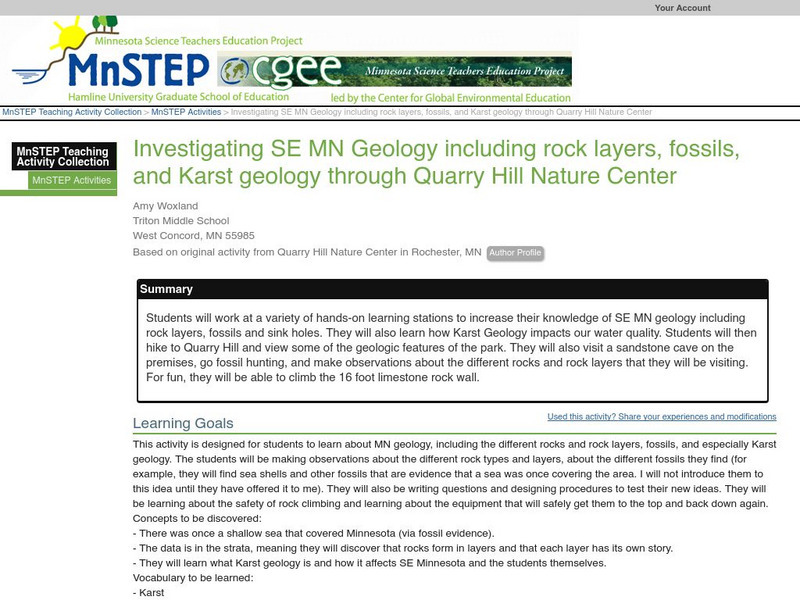
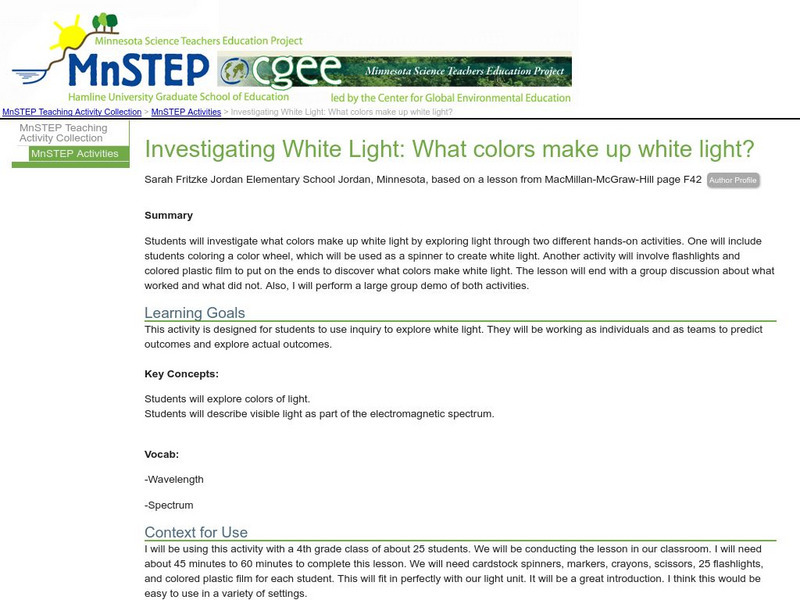
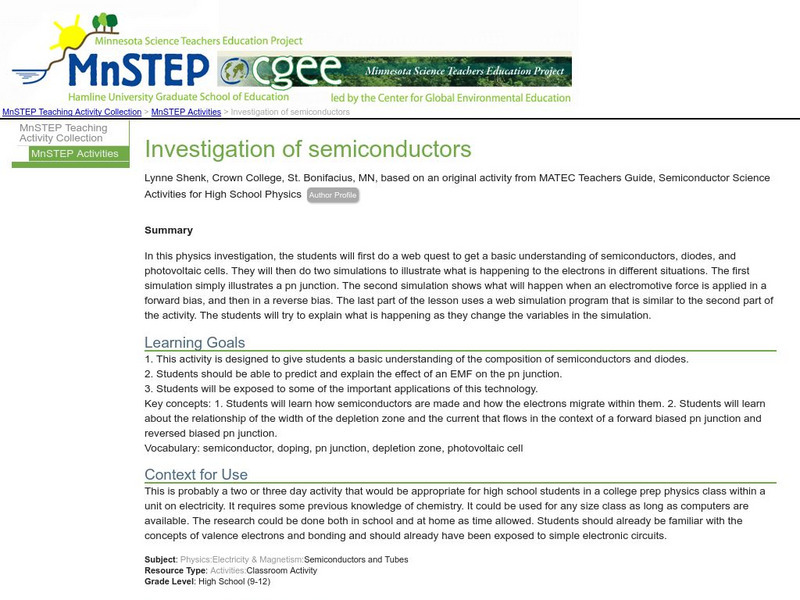

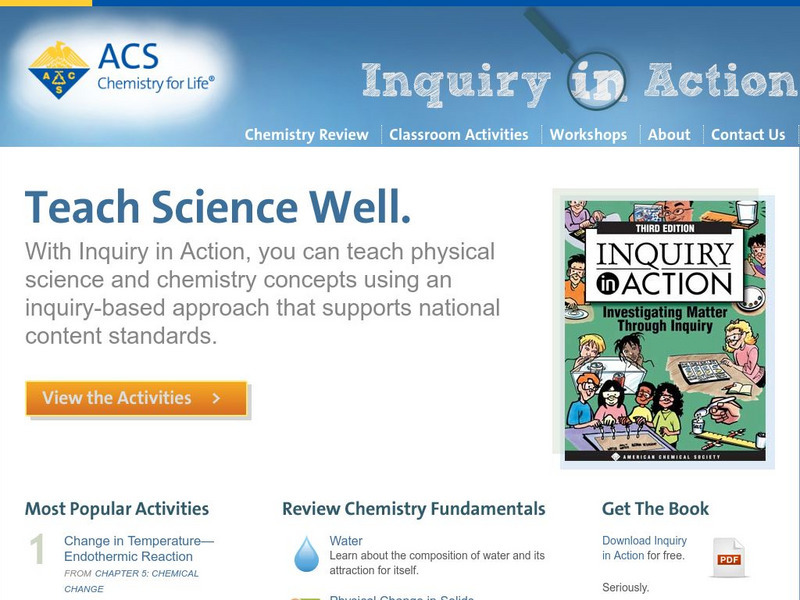

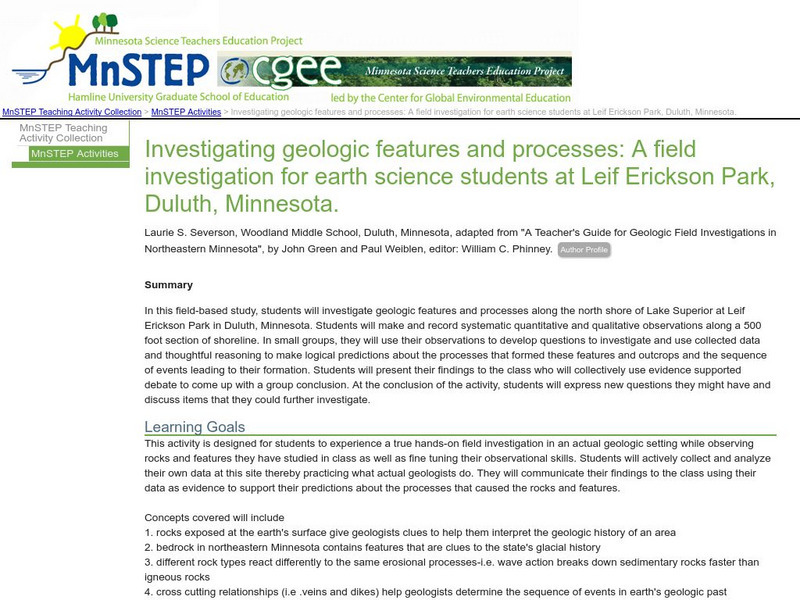



![Pbs Mathline Lesson Plan: Sidewalk Capers [Pdf] Lesson Plan Pbs Mathline Lesson Plan: Sidewalk Capers [Pdf] Lesson Plan](https://static.lp.lexp.cloud/images/attachment_defaults/resource/large/FPO-knovation.png)
